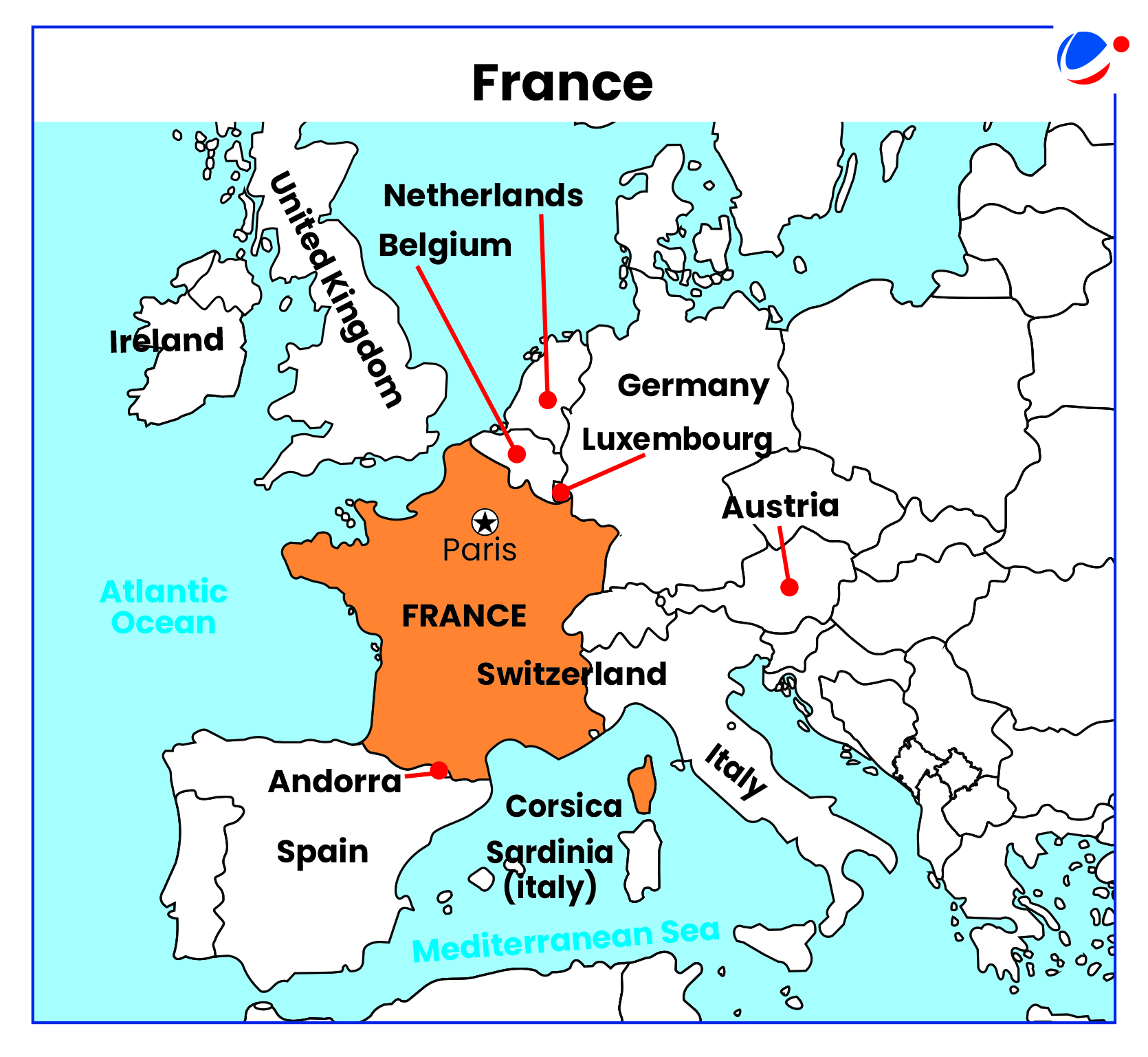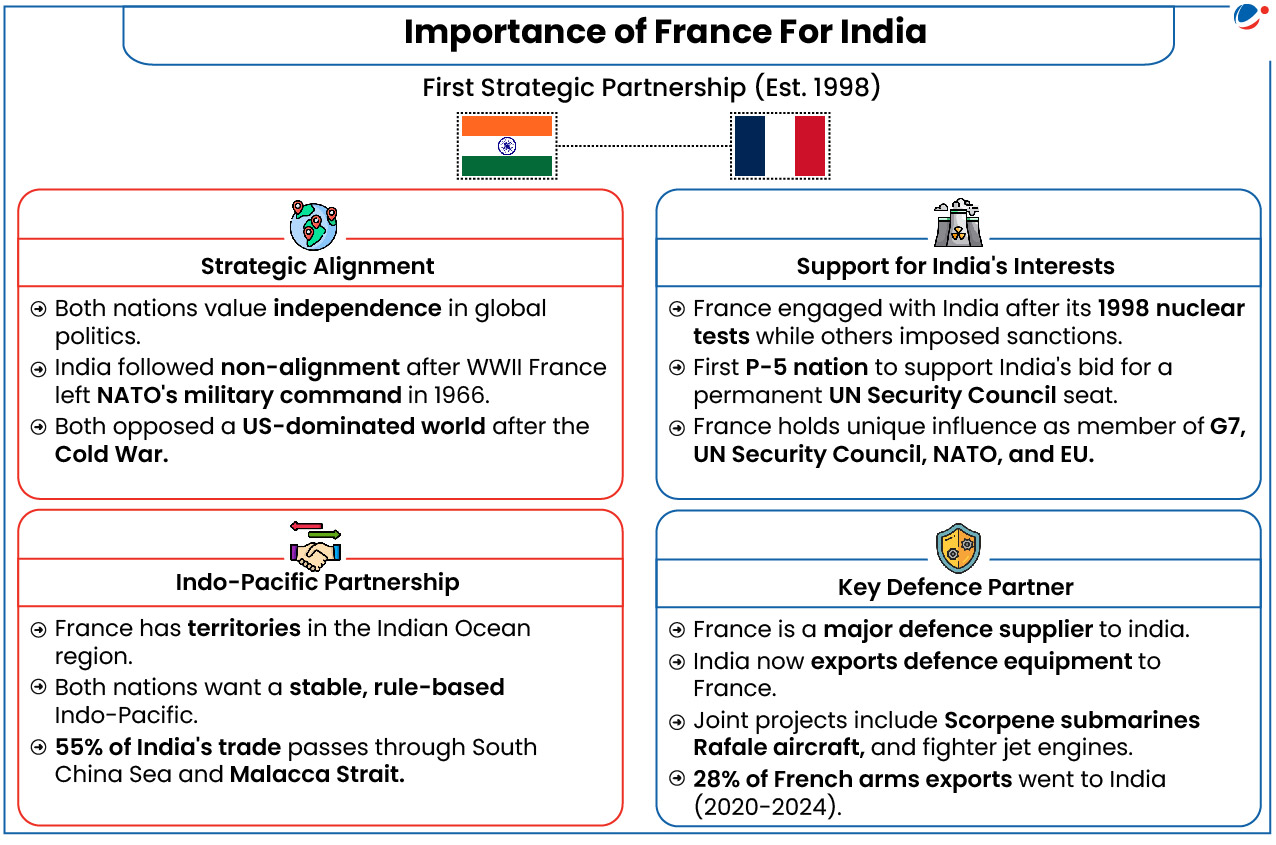
Why in the News?
India and France co-chaired Artificial Intelligence (AI) Action Summit held in France.
More on the news
- The AI Action Summit, organized by France in Paris, with UNESCO as a key participant, aimed to ensure that the development and deployment of AI benefits societies, economies, and the environment, in the interest of the common good.
- The Summit witnessed participation from Heads of State/Government, Heads of International Organizations, and business leaders from the field.
- France supported India as the host of the next AI Action Summit.


Key Dimensions of India-France Partnership
France was the first country with which India launched its first-ever Strategic Partnership on 26 January 1998 to deepen bilateral relations.
Key Areas of Cooperation are:
Cooperation Area | Description |
Economic |
|
Defence
|
|
Science |
|
Space |
|
Civil Nuclear |
|
Other Areas |
|
Key Challenges in India-France relations
- Roadblocks in Nuclear Energy Cooperation: France has offered to build nuclear power reactors in Jaitapur, but challenges remain, including high costs, delays, and concerns over India's Civil Liability for Nuclear Damage Act (2010).
- The CLNDA that ensures compensation for nuclear disaster victims created tensions with foreign (including France) suppliers.
- Divergent Geopolitical Stances: France actively supports Ukraine against Russia, whereas India maintains a neutral stance, abstaining from UNGA resolutions. This difference in approach could affects diplomatic alignment,
- Intellectual Property Rights (IPRs) Concerns: French businesses cite weak enforcement of intellectual property rights in India, particularly in pharmaceuticals, fashion, and technology.
- Issues like counterfeiting, prolonged patent approval processes, and inadequate legal protection discourage French investment and innovation collaborations.
- Trade Barriers and Protectionist Policies: Indian exports face resistance in France, especially in agriculture. The French rice association's opposition to recognizing Basmati rice as a Geographical Indication (GI) product is a notable example. Additionally, stringent EU sanitary and phytosanitary measures create non-tariff barriers for Indian goods.
- Stalled India-EU Free Trade Agreement (FTA): The India-EU Broad-based Trade and Investment Agreement (BTIA) has been in negotiation since 2007 with no resolution.
- Because of this both countries have not been able to harness their trade potential.
- Limited Private Sector and People-to-People (P2P) Engagement: India-France cooperation is largely government-driven (G2G), focusing on defense, space, and energy.
- However, business-to-business (B2B) and people-to-people (P2P) engagement remain suboptimal.
Conclusion
Strategic Partnership does not mean agreeing on everything, but handling disagreements privately. India and France have built this kind of relationship over many years. Both countries need to solve nuclear energy problems, speed up trade agreements with the EU, and improve intellectual property protections to strengthen economic connections. They also need to find shared positions on global conflicts like Ukraine to work better together diplomatically.






